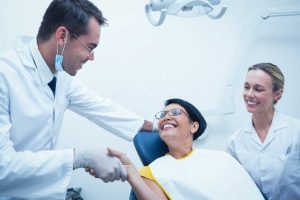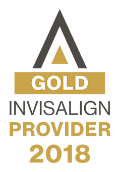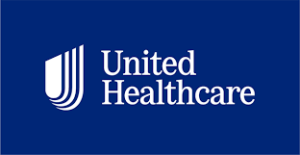Antibiotic Therapy: A Key Player in Combating Gum Disease
Gum disease, also known as periodontal disease, affects millions of people and can lead to serious oral health complications, including tooth loss and damage to the underlying bone. This condition is caused by harmful bacteria accumulating along the gum line, leading to inflammation, bleeding gums, and, if left untreated, advanced periodontitis.
At our Tacoma, WA, dental office, our Tacoma dentist breaks down antibiotic therapy as part of comprehensive gum disease treatment options. Antibiotics, when combined with other treatments like scaling and root planing, help eliminate disease-causing bacteria and promote tissue regeneration. To learn how we can help restore your gum health, contact us today at (253) 761-5422.

What Is Antibiotic Therapy?
Antibiotic therapy targets bacterial infections contributing to gum disease. This treatment can be administered in various forms, including oral antibiotics, antibiotic gels, or injections directly into periodontal pockets. These medications work alongside nonsurgical treatments to remove plaque, reduce inflammation, and repair gum tissue.
When used correctly, antibiotics help:
- Combat harmful bacteria.
- Enhance the effectiveness of nonsurgical therapies.
- Promote healing of gum tissue and underlying bone.
- Prevent further complications, such as bone loss or tooth loss.
Your dental professional will create a tailored treatment plan to address your unique needs and ensure successful treatment outcomes.
Types of Antibiotics for Gum Disease
Several antibiotics are commonly used to treat gum disease, each offering specific benefits:
- Tetracyclines: Known for inhibiting bacterial growth and reducing inflammation, these are often prescribed for periodontal infections.
- Macrolides: Effective against bacteria that resist other antibiotics, macrolides help reduce bacterial protein production.
- Penicillins: These antibiotics kill bacteria by preventing them from forming protective cell walls. They can be administered orally or through injections.
- Metronidazole: Often paired with other therapies, it’s particularly effective against anaerobic bacteria.
Your dentist will recommend the appropriate antibiotic based on the severity of your gum disease and the type of bacteria present.
Benefits of Antibiotic Therapy for Gum Disease
Antibiotic therapy offers several advantages, making it an essential tool in gum disease treatment:
- Eliminates infection: Quickly reduces bacterial infection and alleviates symptoms such as bleeding gums and bad breath.
- Prevents disease progression: Helps stop gum disease from advancing to more severe stages.
- Minimally invasive: Often used as part of nonsurgical therapies like scaling and root planing.
- Improves oral hygiene: Supports other treatments to prevent recurrence and maintain oral health.
- Enhances overall health: Reduces the risk of complications linked to untreated gum disease, such as heart disease.
How Does Antibiotic Therapy Work?
Antibiotics target disease-causing bacteria in the periodontal pockets and gum tissue. These medications either kill bacteria or inhibit their growth, allowing your body’s immune system to combat the infection effectively. For optimal results, antibiotic therapy is often combined with deep cleaning procedures, such as scaling and root planing, to remove tartar buildup and promote healing.
Your dentist will evaluate your condition to determine the most effective course of action, which may include:
- Local application: Antibiotic gels or mouth rinses applied directly to infected areas.
- Systemic treatment: Oral antibiotics to treat more severe infections.
- Injection therapy: For targeted delivery to deep gum pockets.

Alternatives to Antibiotic Therapy
While antibiotics are highly effective, alternative treatments may be recommended based on your condition:
- Laser Therapy: A minimally invasive option (LANAP or LAPT) for removing plaque and bacteria.
- Probiotics: Helps balance the oral microbiome and reduce bacterial growth.
- Herbal Remedies: Tea tree oil, echinacea, or other natural remedies with antibacterial properties.
- Surgical Treatments: For advanced periodontitis, options like pocket reduction surgery, bone grafts, or soft tissue grafts may be necessary.
Cost of Antibiotic Therapy
The cost of antibiotic therapy varies depending on factors like the type of antibiotic, duration of treatment, and your dental provider. Dental insurance coverage often offsets costs, especially when antibiotics are part of a broader gum disease treatment plan. To receive a personalized estimate, contact our Tacoma dental office. We’ll also help you navigate your insurance benefits.
Frequently Asked Questions
How long does antibiotic therapy take to treat gum disease?
Most patients notice improvements in gum disease symptoms within a few days to a week. However, completing the full course of antibiotics is essential to prevent recurrence.
What are the common side effects of antibiotics used in gum disease treatment?
Common side effects of antibiotics used in gum disease treatment may include upset stomach, diarrhea, and yeast infections. Some antibiotics may also cause allergic reactions, such as hives or difficulty breathing. It’s important to discuss any concerns about side effects with your dentist or healthcare provider before starting treatment.
Can antibiotics cure gum disease?
While antibiotics effectively target bacterial infections, they’re typically part of a broader treatment plan, including deep cleaning and improved oral hygiene practices.
Are there any risks associated with antibiotic therapy?
Common side effects include upset stomach, diarrhea, or allergic reactions. Long-term use may lead to antibiotic resistance, so it’s crucial to follow your dentist’s guidance.
Take the First Step Toward Healthier Gums
Don’t let gum disease compromise your smile or overall health. Antibiotic therapy, combined with high-quality dental care, can restore your oral health and prevent serious complications.
Call our Tacoma dental office at (253) 761-5422 to schedule your consultation today. We proudly serve patients in Tacoma, Lakewood, Puyallup, Federal Way, Gig Harbor, and University Place.





















